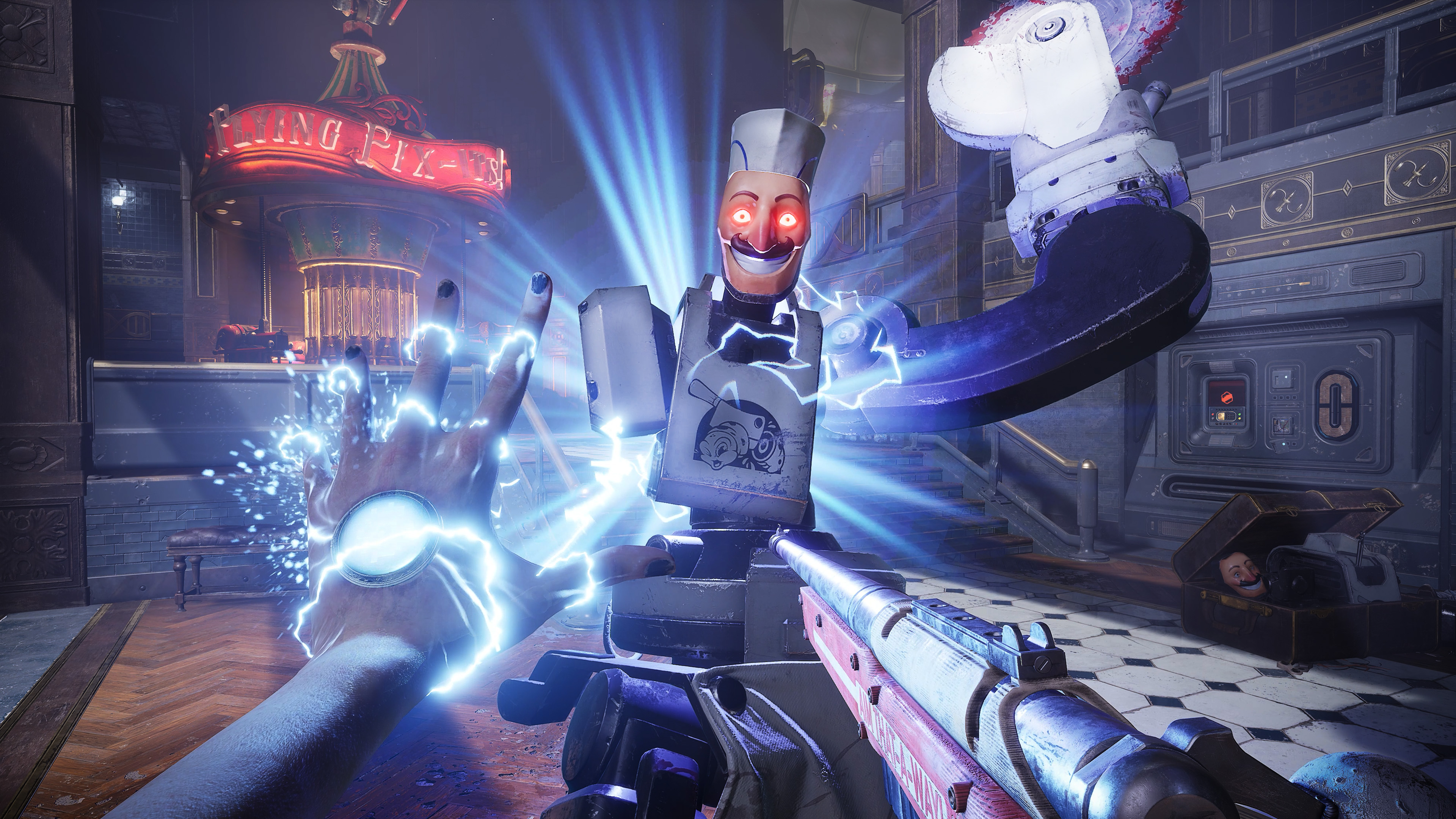Ken Levine says Judas might look a bit like Bioshock, but it's 'really radically different'
"This is probably the biggest radical departure we've made since I did BioShock."

Keep up to date with the most important stories and the best deals, as picked by the PC Gamer team.
You are now subscribed
Your newsletter sign-up was successful
Want to add more newsletters?

Every Friday
GamesRadar+
Your weekly update on everything you could ever want to know about the games you already love, games we know you're going to love in the near future, and tales from the communities that surround them.

Every Thursday
GTA 6 O'clock
Our special GTA 6 newsletter, with breaking news, insider info, and rumor analysis from the award-winning GTA 6 O'clock experts.

Every Friday
Knowledge
From the creators of Edge: A weekly videogame industry newsletter with analysis from expert writers, guidance from professionals, and insight into what's on the horizon.

Every Thursday
The Setup
Hardware nerds unite, sign up to our free tech newsletter for a weekly digest of the hottest new tech, the latest gadgets on the test bench, and much more.

Every Wednesday
Switch 2 Spotlight
Sign up to our new Switch 2 newsletter, where we bring you the latest talking points on Nintendo's new console each week, bring you up to date on the news, and recommend what games to play.

Every Saturday
The Watchlist
Subscribe for a weekly digest of the movie and TV news that matters, direct to your inbox. From first-look trailers, interviews, reviews and explainers, we've got you covered.

Once a month
SFX
Get sneak previews, exclusive competitions and details of special events each month!
It sure feels like Judas isn't all that far away. Three years after the game's announcement, Ghost Story Games' main man Ken Levine is suddenly popping up all over the place to drop tidbits about the upcoming shooter, and last month brought the game's first dev log and a promise to "communicate more frequently." So you're going to be hearing the phrase "narrative legos" an awful lot.
Expectations are high for Judas, but it also has to be said that it looks a hell of a lot like another Bioshock game. In a new interview with YouTuber MrMattyPlays, Levine talks a little more about Judas and the similarities to his previous work: but insists it's got a whole lot more going on than plasmids and wrenches.
"There are parts of Judas that are more similar to BioShock, and there are parts of Judas that are really, really radically different," said Levine. "I'm sure people notice there's a gun in one hand [and] powers [in] the other hand. We have an additional hacking thing which we haven't shown off that much.
"But the way the game works, and the way the game is populated, and the way you choose between these relationships is something we've never ever done before. The way the world is decorated, the way encounters come in, the way you choose paths in the game, those are all so radically different. … the way story's delivered. This is probably the biggest radical departure we've made since I did BioShock. This is more of a departure in some ways than Bioshock was to System Shock 2."
Levine goes on to say that System Shock 2 was "pretty hardcore", Bioshock was "more interested in world-building", and Infinite was "trying to push even further into more accessible." Judas, he reckons, "is somewhere between Bioshock and System Shock 2 in its depth."
This is the jumping off point for a brief discussion of the game's relationships, which seem like the secret sauce that will make or break Judas. There's another Bioshock comparison here in the form of Elizabeth, who was initially conceived of as a much more complex and reactive companion: In the end, barring some canned animations and reactions while exploring, she was basically a glorified coin-thrower that wafted around being invincible and shouting "Booker!" all the time.
Levine acknowledges that "Infinite felt a little light to me on player expression" and says Judas is constructed around building relationships "with characters that feel way more granular" and "being able to play people off each other."
Keep up to date with the most important stories and the best deals, as picked by the PC Gamer team.
Brief context: you play the character Judas, who's on a spaceship called the Mayflower(!) that carries the last survivors of humanity. The fate of everyone is tied up with three powerful characters that the player can befriend, spend time with, and potentially alienate: If I'm understanding correctly, one of them will become the game's antagonist, but this is all dependent on how the player acts throughout.
Judas doesn't currently have a release date, but with Levine feeling his way back into interviews and dev logs I'd speculate we're not a million miles away from playing this. And hell, it's been way too long since we've had a grandiose narrative shooter that aims for the moon: expect something "very old school", says Levine, because "you buy the game and you get the whole thing… no online component, no live service."
2025 games: This year's upcoming releases
Best PC games: Our all-time favorites
Free PC games: Freebie fest
Best FPS games: Finest gunplay
Best RPGs: Grand adventures
Best co-op games: Better together

Rich is a games journalist with 15 years' experience, beginning his career on Edge magazine before working for a wide range of outlets, including Ars Technica, Eurogamer, GamesRadar+, Gamespot, the Guardian, IGN, the New Statesman, Polygon, and Vice. He was the editor of Kotaku UK, the UK arm of Kotaku, for three years before joining PC Gamer. He is the author of a Brief History of Video Games, a full history of the medium, which the Midwest Book Review described as "[a] must-read for serious minded game historians and curious video game connoisseurs alike."
You must confirm your public display name before commenting
Please logout and then login again, you will then be prompted to enter your display name.



